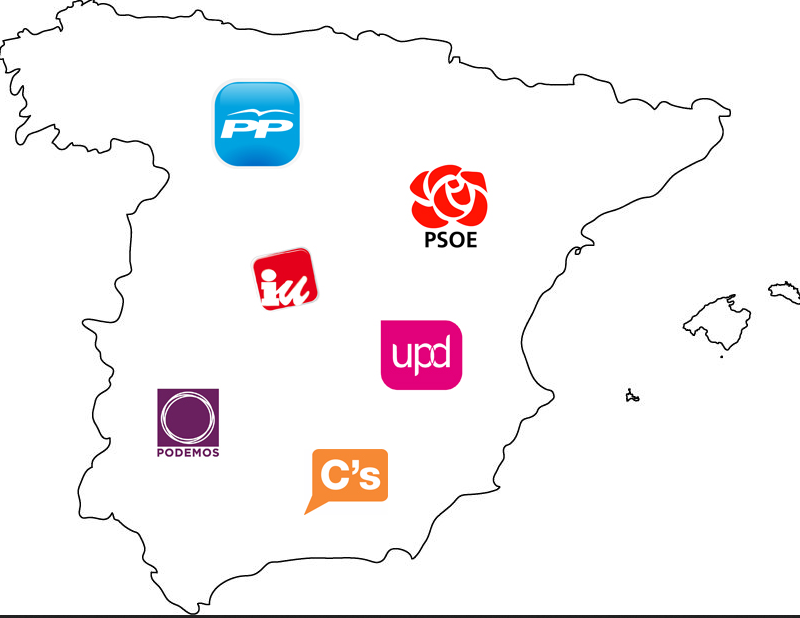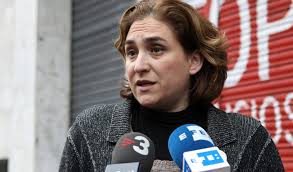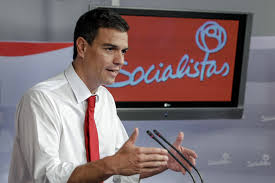
Ada Colau, 41, was not even born when Manuela Carmena, 71, joined Spain’s underground Communist party  and started her legal career by attacking labor restrictions imposed by Francisco Franco, the Spanish dictator.
and started her legal career by attacking labor restrictions imposed by Francisco Franco, the Spanish dictator.
But even if separated by a generation, Ms. Colau and Ms. Carmena both found themselves claiming similar left-wing victories by upstart candidates over Spain’s political establishment after the recent regional and municipal elections.
Ms. Colau, a former activist who fought housing evictions, defeated Barcelona’s mayor, Xavier Trias, which she described as a “David against Goliath” victory. Ms. Carmena, a retired judge, did not win in Madrid, but her strong showing nonetheless made it very likely that she would become mayor of Spain’s capital this month, at the helm of a coalition with the Socialists.
she described as a “David against Goliath” victory. Ms. Carmena, a retired judge, did not win in Madrid, but her strong showing nonetheless made it very likely that she would become mayor of Spain’s capital this month, at the helm of a coalition with the Socialists.
The success of anti-establishment candidates, who ran for small local parties, in the two largest Spanish cities underlined the fragmentation of Spain’s politics, as well as the precipitous slide of the governing Popular Party of Prime Minister Mariano Rajoy, ahead of general elections later this year.
The elections also confirmed the erosion of Spain’s bipartisan system. The Popular Party and the main opposition Socialist Party together won just over half of the votes, compared with two-thirds in the last election in 2011. Instead, Podemos, a far-left party, and — to a lesser extent — Ciudadanos, a center-right party, emerged as the new kingmakers of Spanish politics. Now come complicated negotiations to form new regional governments and city administrations across the country.
opposition Socialist Party together won just over half of the votes, compared with two-thirds in the last election in 2011. Instead, Podemos, a far-left party, and — to a lesser extent — Ciudadanos, a center-right party, emerged as the new kingmakers of Spanish politics. Now come complicated negotiations to form new regional governments and city administrations across the country.
In 2011, the Popular Party swept to power as voters punished the Socialists for sinking Spain into economic  crisis. Four years later, Mr. Rajoy has been urging voters not to risk derailing Spain’s recent return to growth by entrusting economic management to left-leaning or untested political parties. The government is forecasting growth of 2.9 percent this year, which Mr. Rajoy expects to be the strongest among major European nations.
crisis. Four years later, Mr. Rajoy has been urging voters not to risk derailing Spain’s recent return to growth by entrusting economic management to left-leaning or untested political parties. The government is forecasting growth of 2.9 percent this year, which Mr. Rajoy expects to be the strongest among major European nations.
However, “there is a broader change in the political mood in Spain that the Popular Party doesn’t seem to be able to grasp,” said Manuel Arias-Maldonado, a politics professor at the University of Málaga. The recent results, he added, show that the Popular Party had “false confidence that economic recovery would suffice” to win elections.
Pablo Iglesias, the national leader of Podemos, told supporters that the results in Spain’s  largest cities showed the end of the bipartisan system. In Valencia, Spain’s third-largest city, Rita Barberá, the conservative mayor, is also expected to resign after 24 years. Ms. Barberá’s Popular Party won, but with an insufficient margin to stop left-leaning parties from forming a coalition and removing her from office.
largest cities showed the end of the bipartisan system. In Valencia, Spain’s third-largest city, Rita Barberá, the conservative mayor, is also expected to resign after 24 years. Ms. Barberá’s Popular Party won, but with an insufficient margin to stop left-leaning parties from forming a coalition and removing her from office.
“The big cities are the big engine of change in Spain,” Mr. Iglesias said. He went on to predict that the change in the country’s political landscape would be confirmed in general elections to be held at the end of the year.
Such a forecast seems premature. But teh recent outcome suggests that the days of clear-cut results in Spanish elections are numbered, replaced instead by four-way races that will force parties to enter into the largely uncharted waters of coalition negotiations.
“Given the absence of a coalition-making culture and the low incentives to cooperate ahead of the legislative  elections, the coming months could see the emergence of political stalemate in many places across the country,” Antonio Barroso, a Spanish analyst at Teneo Intelligence, a think tank in London, said in a research note.
elections, the coming months could see the emergence of political stalemate in many places across the country,” Antonio Barroso, a Spanish analyst at Teneo Intelligence, a think tank in London, said in a research note.
In Madrid, Ms. Carmena was urged by friends to come out of retirement to run a campaign based partly on the argument that she could bring more integrity to Spain’s corruption-plagued political scene. After the results, Ms. Carmena pledged to make Madrid “a decent and fair city.”
Ms. Carmena also argued during her campaign that Madrid’s city hall should steer clear of the grand projects favored by recent conservative administrations. In a curious twist, the Popular Party’s own candidate, Esperanza Aguirre, a veteran politician, also tried to distance herself from her own party’s past unchecked spending by pledging to move out of the city hall building, if elected, because of the cost of the building’s upkeep.
In Barcelona, Ms. Colau continued the kind of campaign on behalf of the disenfranchised that she had previously led against housing evictions, during Spain’s banking crisis. She also promised a drastic cut in her Barcelona mayor’s salary if elected. Last week, Ms. Carmena followed suit, saying that she wanted Madrid’s next mayor to earn 45,000 euros, a year, compared with the salary of €100,000 for the current conservative mayor.
A tearful Ms. Colau told her supporters : “Ordinary people, who normally don’t have any power, had a historic opportunity and used it. Congratulations. ”
Ms. Colau and Ms. Carmena “can claim to be different, fresh and nonprofessional politicians,” said Mr. Arias-Maldonado, the politics professor. “They offered voters the prospect of a change and something new, even if its exact content isn’t yet clear.”
Which political party or coalition do you think holds the key to Spain's future? Please cast your vote and leave a comment.
[Source NY Times - Reuters UK]